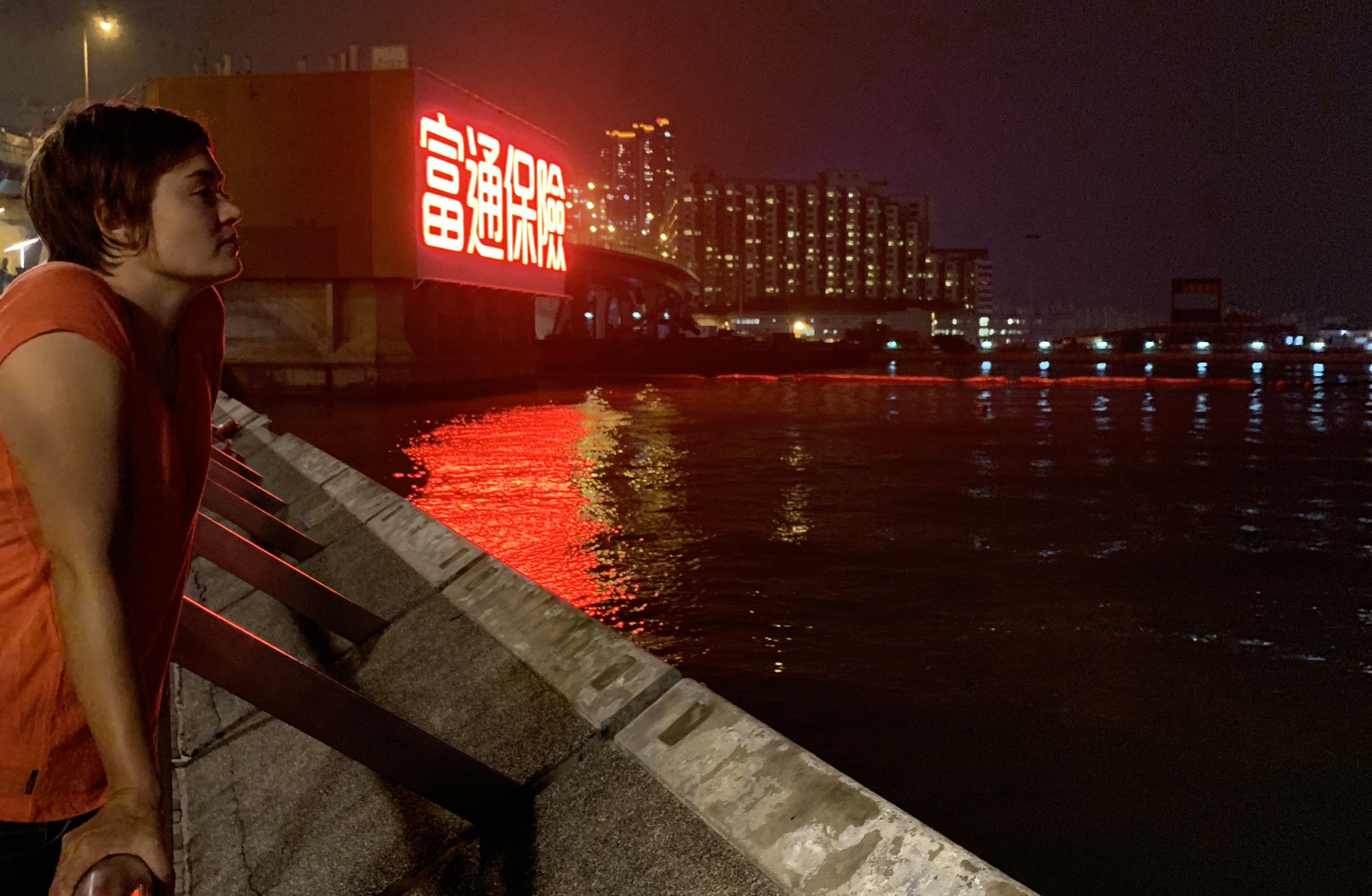We land in Hong Kong with nine checked bags, which is strangely the most efficient method of transporting the sum of our San Francisco years. Waiting for them I remember other moves, and the challenges of each. Where has the boy gone who left Tokyo with two suitcases, who did not know how to get a taxi or any RMB on landing in Shanghai? What of the boy who left Shanghai with those same two suitcases and two shipped boxes, put on 3 month China Post slow boats destined for Houston? And most of all, what does this mean for the man who has disembarked at this same gate a dozen times over the last two years, carrying a single duffel?
They are all here, these previous selves, well aware of the way we pack when trying to take everything we own on short notice. They are here, in an airport we know so well, watching me maneuver this very full cart down the slight ramp to the taxi stand. They are voices in my head asking how these bags will ever go in a small Hong Kong taxi trunk.
Moving is a test. We test our ability to let go in a way that is painful and educational. We have said goodbye to our friends, to our neighborhood, to our house, to our routines, and to our stuff. Bicycles have been moved, sold, and given away. Art, furniture, kitchen gear and more has been handed off to people who will be able to enjoy them without transporting them more than a few miles. Soon we will part with the car, the bed, and finally the apartment that we’ve loved for the past four years. Moving is an experience filled with sadness and uncertainty. By letting go of all these things we are able to make space for new ones, whether that means new apartments or new shoes. And by letting go of our country and our city, at least for now, we are able to discover.
In Hong Kong in early October the weather is beautiful. At seven am, as we struggle with the overloaded carts, it’s a balmy twenty eight C, the humidity not too high. Wearing pants still from the airplane we are already slightly sweaty but able to manage. And we are able to discover how our new home operates.
The fourth vehicle in the taxi queue is a van, and the driver enthusiastically helps us cram all our bags in, guitar and skateboard included. The process, which I’d been dreading since the night before, takes five minutes and then we’re on the road, both in the same car, on our way to the hotel. Having used two separate Lyft rides to get to SFO sharing the taxi is a treat. En route we realize, were we going the other way, Hong Kong to SFO, we could have checked all these bags at Central and ridden the train out to HKG with only our carry ons. From moment one Hong Kong impresses with functionality. All nine checked bags go on a cart at the hotel and are whisked away to a storage room. Moving, even with more stuff than we could carry, isn’t that bad. Two hours after landing we go for a swim in a pool overlooking the harbor and begin to relax.
As an asthmatic one of the other challenges of moving is procuring medicine. In the US and in Japan inhalers have required a complicated dance of doctors and pharmacies. In China for so long they were available over the counter, only becoming prescription in two thousand seven. So it is with some slight trepidation that I set out to find one on our second day in Hong Kong.
I purchase one after five minutes of looking at a pharmacy in Mongkok for $93 HKD, or $12 USD. In SF they have cost me $25 for the past two years, with good insurance. No one is quite sure how much extra the insurance company has to pay, on top of my $25. For the second time in two days I’m reminded of why we leave, why we move and challenge ourselves. Without those painful goodbyes, without the long days of packing and worrying, we would never have learned how easy moving can be, and how cheap medication can come.
These examples are mundane, and yet they’re a reminder that what seems daunting isn’t always so, and that taking risks is one way of discovering new joy.
Here then is to the next few months, which will be full of new neighborhoods and first time discoveries. They come at a high cost, one we’ve paid over years, and will bring benefits we have not yet learned to expect.
